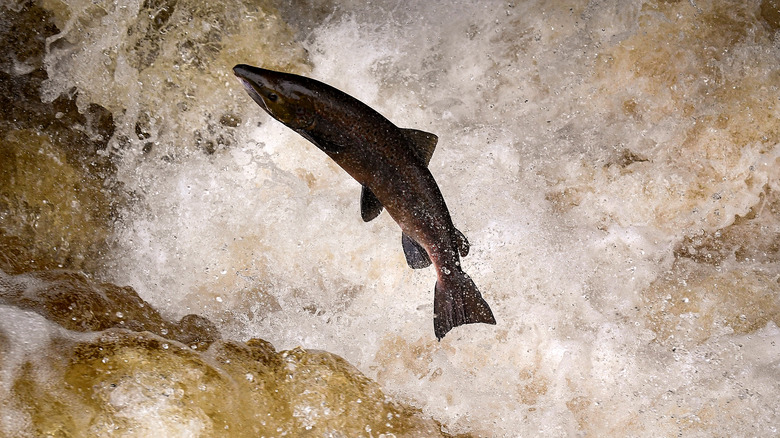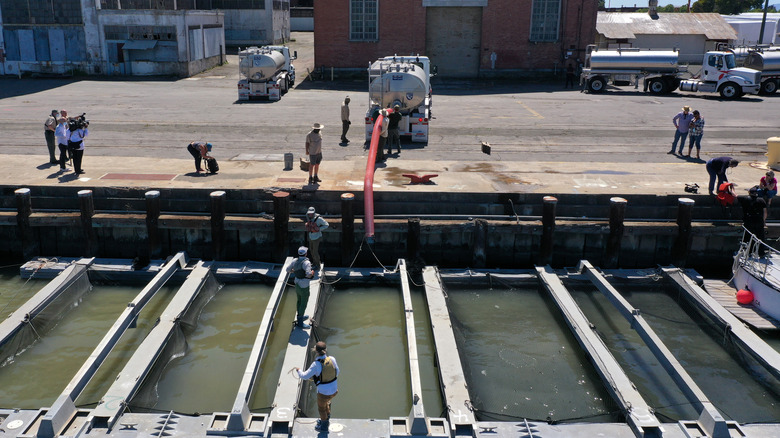The Surprising Way Climate Change Is Affecting How Salmon Travel
In the haze of the of last month's heat wave, days became weeks, forcing Oregonian scientists to take extreme measures (via The Wall Street Journal). They loaded 350,000 Chinook salmon onto five trucks and ferried them from the Warm Springs River to the Little White Salmon National Fish Hatchery in Washington. "We don't want to move fish unless it becomes absolutely necessary," explained Bob Turik, one of the scientists involved.
What made the move absolutely necessary was that the Pacific Northwest has experienced record breaking temperatures. Portland reached 116 degrees Fahrenheit. And, as CNN reported in 2019 during a heat wave in Alaska, rising temperatures kill salmon. "Physiologically," Sue Mauger, the science director for the Cook Inletkeeper, explained, "the fish can't get oxygen moving through their bellies." Other salmon were too sapped of energy to spawn more of their species.
The temperature salmon can handle, as Crosscut writes, is 68 degrees Fahrenheit. The water temperature in Alaska that caused such death in 2019 was 81.7 degrees Fahrenheit. While the idea of conveying salmon from one body of water to another by truck may at first sound silly, it is absolutely necessary when their region has baked at temperatures over 100 degrees Fahrenheit for over two weeks.
This practice has become increasingly common
The salmon trucking reported by The Wall Street Journal isn't even the first time it has happened this year. In June, The Guardian reported on how the state of California set out to bring 17 million salmon to the sea by truck. This is a response to both the heightened heat that threatens to kill the salmon, as well as the early droughts that have cut off the traditional path the fish take to the ocean. "Trucking young salmon to downstream release sites has proven to be one of the best ways to increase survival to the ocean during dry conditions," North Central Region Hatchery Supervisor, Jason Julienne, stated in a press release.
Of course, the reason behind the expansive and expensive salmon rescue operation is probably not that the state feels obligated to help its wildlife, but that salmon are a lucrative livestock. In their coverage of the salmon trucking, Insider notes that commercial and recreational salmon fishing earns profits of about $900 million. The other fish that may struggle in the heat will just have to cope.

